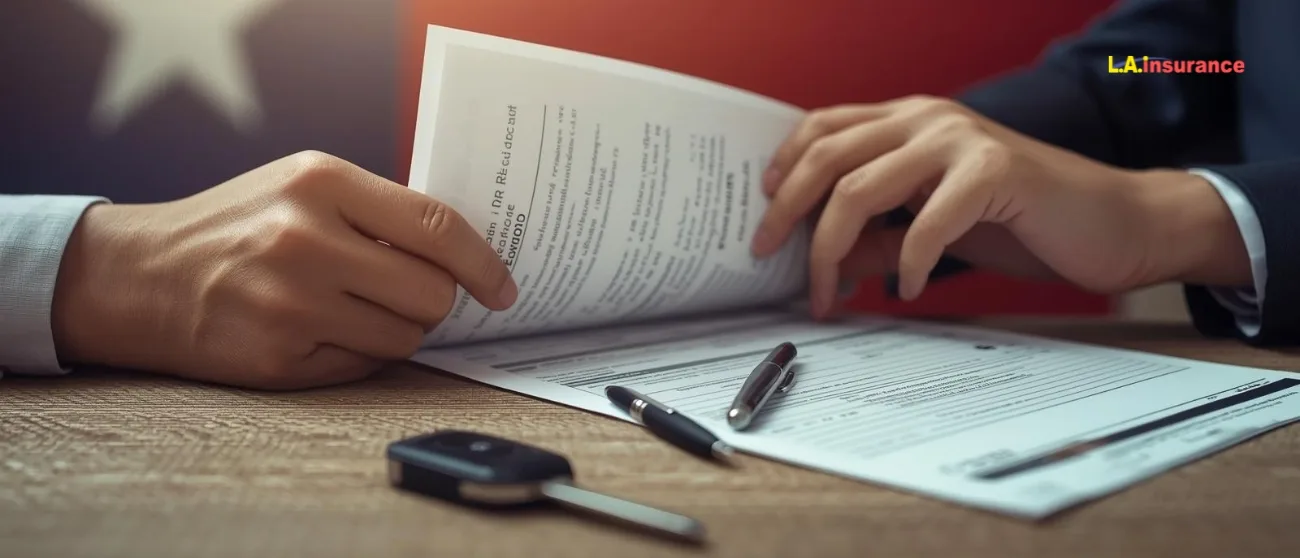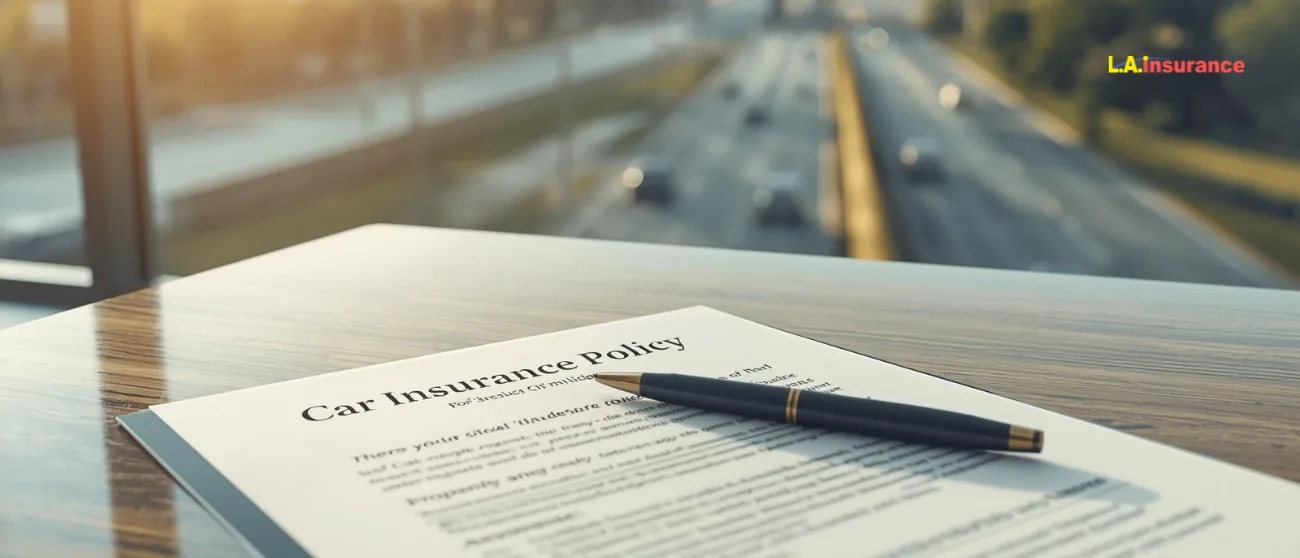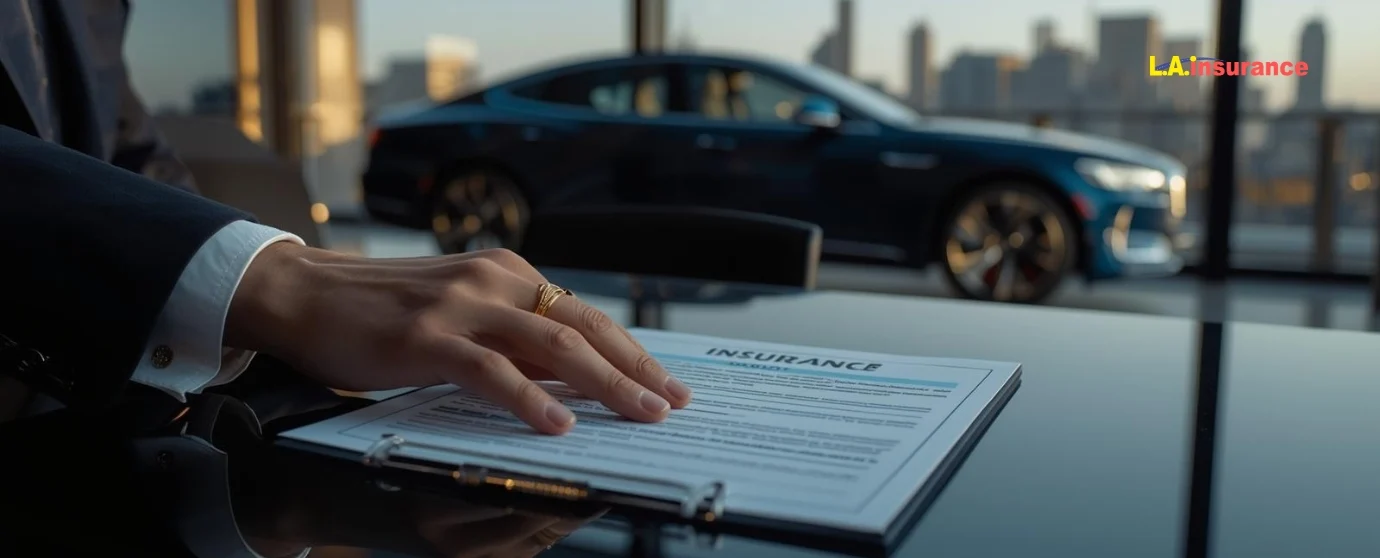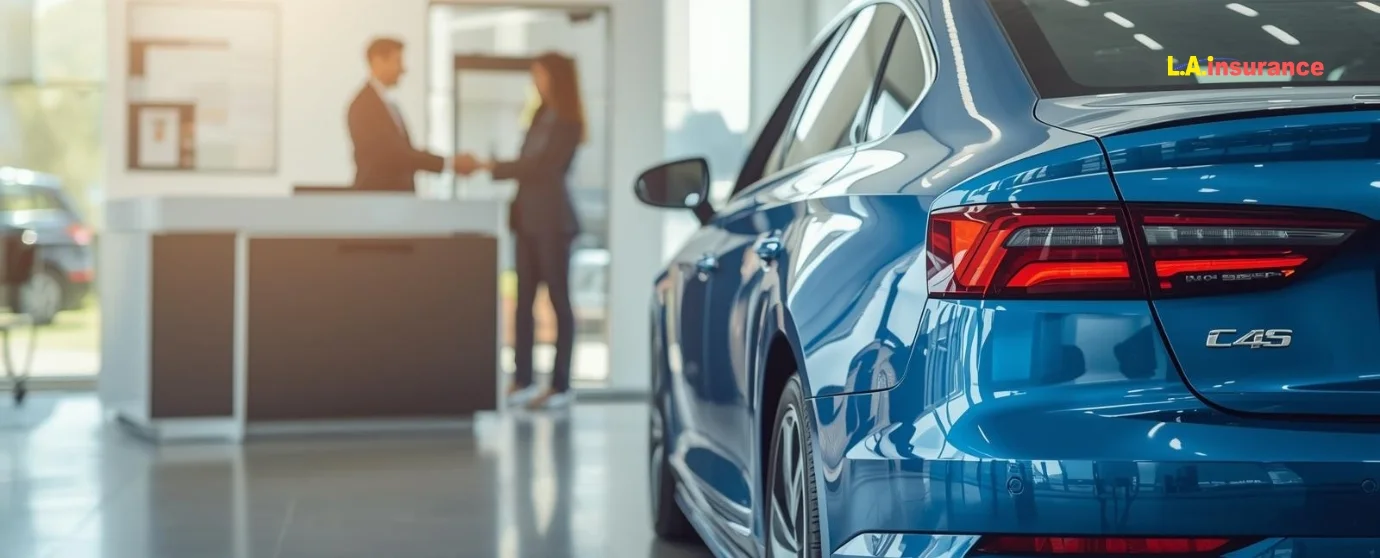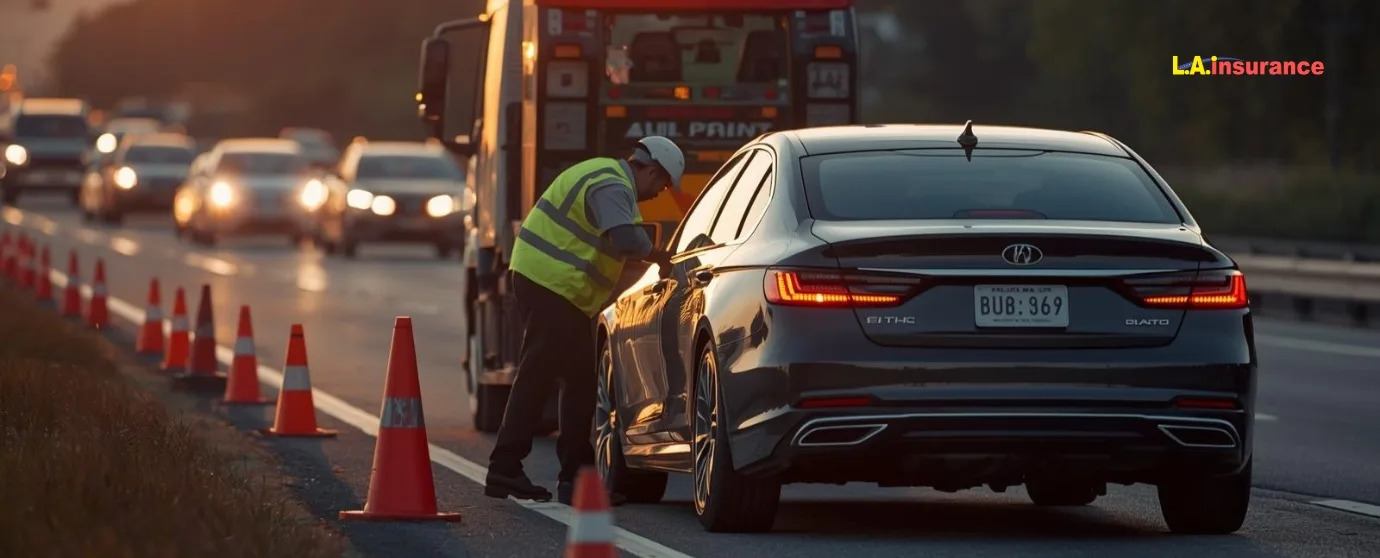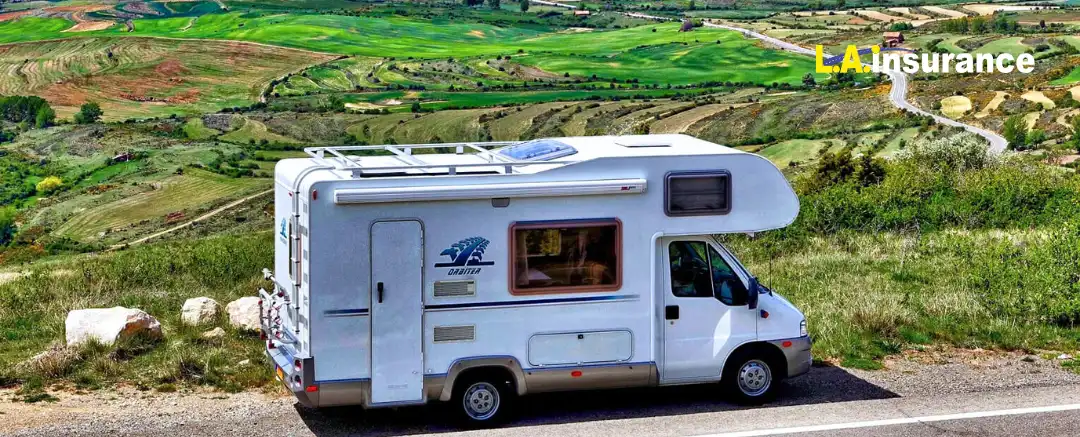
Publish Date: 28-06-2025
RV & Motorhome Insurance
Last Updated: 15-12-2025
Do You Have to Have RV Insurance
Yes, you do have to have RV insurance in nearly every state. Just like a car, your recreational vehicle needs protection. Whether it’s a legal requirement or just smart to have, you shouldn’t skip RV insurance. It shields you from financial headaches after an accident, covers damages resulting from natural disasters, theft, or vandalism, and keeps your travel stress-free. So, if you’re asking, “Do I have to have RV insurance?”
The short answer is yes. You’ll need minimum liability insurance for your RV if it’s a motorized vehicle. For non-motorized or stationary RVs like travel trailers, you may not always be legally required to have insurance. Let’s discuss this broadly.
Is RV Insurance Legally Required in the United States?
Yes, you need to have RV Insurance. It’s a legal requirement in almost every state except New Hampshire. However, even in New Hampshire, you’ll need to carry minimum financial responsibility for RVs that are being driven.
Because not all RVs are treated the same. If your recreational vehicle is motorized, like a motorhome, then you’re legally required to carry liability insurance. This means you must have bodily injury and property damage liability before you can legally drive it on public roads. The requirements are similar to auto insurance.
However, some states may even enforce extra insurance coverage on top of liability insurance. For instance, in a no-fault state like Michigan, you’re required to have personal injury protection (PIP).
Besides, if you live in New York, the minimum required insurance for your RV includes uninsured motorists bodily injury (UM) as well as Personal Injury Protection (PIP), along with bodily injury (BI) and property damage (PD).
On the other hand, if you own a travel trailer, the rules shift. Since it’s not self-propelled, the liability coverage on your tow vehicle usually extends to the trailer. However, if you have taken out a loan to buy the trailer, your lender will likely require you to get comprehensive and collision coverage to protect their investment.
RV Insurance Requirement by State (2025)
Here are all 50 states and their legal requirements for motorized RV insurance:
State | RV Insurance Required? | Minimum Liability Limits (BI/PD) | Notes (e.g., No-fault states/ PIP/UM/UIM) |
Alabama | Yes | 25/50/25 | |
Alaska | Yes | 50/100/25 | |
Arizona | Yes | 25/50/15 | |
Arkansas | Yes | 25/50/15 | |
California | Yes | 15/30/5 | |
Colorado | Yes | 25/50/15 | |
Connecticut | Yes | 25/50/25 | |
Delaware | Yes | 15/30/5 | |
Florida | Yes | 0/0/10 (PIP min $10K, limited BI/PD) | PIP and PDL required (minimum $10K) |
Georgia | Yes | 25/50/25 | |
Hawaii | Yes | 20/40/10 | |
Idaho | Yes | 25/50/15 | |
Illinois | Yes | 20/40/15 | |
Indiana | Yes | 25/50/25 | |
Iowa | Yes | 20/40/15 | |
Kansas | Yes | 25/50/10 | |
Kentucky | Yes | 25/50/25 | |
Louisiana | Yes | 15/30/25 | |
Maine | Yes | 50/100/25 | |
Maryland | Yes | 30/60/15 | |
Massachusetts | Yes | 20/40/5 | Includes uninsured motorist minimum |
Michigan | Yes | 20/40/10 (unlimited medical/PIP) | No-fault state, unlimited med benefit, and PPI up to $1 million. |
Minnesota | Yes | 30/60/10 | |
Mississippi | Yes | 25/50/25 or cash bond | Option to post bond instead of insurance |
Missouri | Yes | 25/50/10 | |
Montana | Yes | 25/50/10 | |
Nebraska | Yes | 25/50/25 | |
Nevada | Yes | 25/50/20 | |
New Hampshire | No | N/A (cash bond option) | Peer pays responsibility or posts bond |
New Jersey | Yes | 0/0/5 (PIP min $15K) | PIP required |
New Mexico | Yes | 25/50/10 | |
New York | Yes | 25/50/10 | |
North Carolina | Yes | 30/60/25 | |
North Dakota | Yes | 25/50/25 | |
Ohio | Yes | 20/50/25 | |
Oklahoma | Yes | 25/50/25 | |
Oregon | Yes | 25/50/20 | Includes UM/UIM requirements |
Pennsylvania | Yes | 15/30/5 + PIP $5K minimum | No-fault state, PIP included |
Rhode Island | Yes | 25/50/25 | |
South Carolina | Yes | 25/50/25 | |
South Dakota | Yes | 25/50/25 | |
Tennessee | Yes | 25/50/15 | |
Texas | Yes | 30/60/25 | Or bond $55K if no insurance |
Utah | Yes | 25/65/15 | |
Vermont | Yes | 25/50/10 | |
Virginia | Yes | 30/60/20 (rising to 50/100/25 Jan 2025) | Recent change Jan 2025 |
Washington | Yes | 25/50/10 | Includes UM/UIM requirements |
West Virginia | Yes | 20/40/10 | |
Wisconsin | Yes | 25/50/10 | |
Wyoming | Yes | 25/50/20 | |
District of Columbia | Yes | 25/50/10 | UM/UIM requirements (25/50/5) |
Please note that laws can change. So, before you purchase, talk to your insurer or RV dealer about the minimum insurance requirement.
Also, if you don’t know how to read coverage limit 25/50/25, here’s a breakdown:
- Up to $25,000 for bodily injury per person
- Up to $50,000 for bodily injury per accident
- Up to $25,000 for property damage
What Factors Affect RV Insurance Requirements
The first big factor is the type of vehicle you own. A large Class A motorhome needs more coverage than a small pop-up trailer. That’s because the size, value, and risk of damage differ.
Next, consider how you use your RV. If you’re a full-timer, meaning you live in your RV year-round, you’ll need more than the basics. In such a case, you should think of insuring your RV like home insurance. So, your policy may need vacation liability, medical bills, or personal property coverage in case of theft and vandalism.
Then, there’s where you live or travel. Each state requires its own minimum levels of RV liability coverage. For example, some states require you to carry uninsured and underinsured motorists’ coverage. Other states might require proof of insurance that includes personal injury protection (PIP).
Lastly, your insurance company will consider how often you use your RV, where you store it, and your driving history. These things impact your deductible, your premium, and the kind of insurance you’ll need.
Reasons Why You Need RV and Motorhome Insurance
Cruising the country in your recreational vehicle is freedom like no other. But you need full protection while enjoying this freedom. Because life on the open road can be unpredictable. Here’s why any smart traveller would carry RV insurance every mile they go.
1. It’s Required by Law (In Most Cases)
If your RV is drivable, the law says you must carry liability insurance. That includes bodily injury and property damage liability, which protects others if you cause an accident. Some states go further by requiring uninsured and underinsured motorists coverage and personal injury protection (PIP). Without it, you risk fines or worse. You might even lose your legal right to drive.
2. Lenders and Contract Demand It
Bought your RV or travel trailer with a loan? If yes, then your insurance company will require you to have comprehensive and collision coverage. Because until you pay it off, the RV belongs to the lender, not you. This coverage protects you against theft, vandalism, fire, natural disaster (e.g., flood, storm, hail), and even helps with total loss after a major crash.
3. It Protects Your Wallet from Big Repairs
RV repairs aren’t cheap. A simple mishap can lead to thousands in repair or replacement costs. And if you have the right insurance policy, you won’t have to pay a dime out of pocket except the deductible amount. Whether it’s collision coverage for a horrific on-road crash or comprehensive coverage for storm damage, insurance will pay you for the damage.
4. Accidents Can Happen Even While Parked
You don’t have to be moving to cause any damage. An RV sitting in your driveway can still roll, tip, or be hit by another vehicle. Or maybe a branch crashes through your roof during a storm. That’s why insurance like collision, comprehensive, vacation liability, and full-timer’s liability is so important.
5. It Covers More Than Just Driving
If you’re a full-time or just use your RV like a second home, basic coverage isn’t sufficient. You’ll want broader coverage like home insurance offers. In such a case, it would be more beneficial to carry additional coverage like roadside assistance, extended warranty, total loss replacement, gap insurance (if you’re financing your RV), and personal belongings coverage.
In the end, we want to say that you wouldn’t go without auto insurance in your car or life insurance for your loved ones. So, why skip it for your RV? Whether you have a sleek Class A or cozy travel trailer, the right coverage can help you keep your peace of mind.
Find a cheap RV and motorhome insurance coverage at L.A. Insurance. Our affordable insurance agency for RVs has been chosen and loved by more than millions of policyholders. To grab yours, request an RV insurance quote today. Or you can visit any of the nearby regional offices located across multiple states, including Michigan, Colorado, Texas, Florida, Arizona, Georgia, and Nevada. Dial us at (800) 893-9393 for any support.
What Type of Insurance Do I Need for My RV?
RV liability insurance is mandatory for motorhomes or drivable RVs. However, it may not always be required to have liability insurance for your stationary or towable RVs.
Depending on the use of your recreational vehicle, destination, and desired protection level, you can choose from the following standard coverages:
- Liability Insurance: Covers bodily injury and property damage you cause to others. These are mandatory insurance coverages for all RV owners.
- Comprehensive Coverage: Protects against theft, vandalism, fire, animal collision, and natural disasters.
- Collision Insurance: Pays for damage to your RV in a crash.
- Uninsured/Underinsured Motorists: Covers injuries if the other driver doesn’t have enough insurance.
- Full-Time RV Insurance: It's a coverage designed for full-time RVers that consists of essential coverage for people who use their RV as their primary residence or only residence. If you're a full-time RVer, you're going to need this one.
Additional Coverage (Smart Add-ons):
- Vacation liability RV insurance: for accidents at your campsite.
- Roadside Assistance: For towing, flat tire, or breakdown.
- Full-Timer Coverage: Like home insurance, if you live in your RV.
- Total Loss Replacement: Helps replace your RV if it’s destroyed.
Are There Any Specific Insurance Requirements If I Live in My RV Full-Time?
Although there is no state-mandated insurance for those who live in their RVs permanently, except liability insurance, it’s highly recommended to choose extensive protection. Because if you use your RV or travel trailer as your primary home, consider it like home insurance.
You’re not using your RV for traveling from one place to another, rather, it’s your property, your residence, and your daily shelter. That calls for a different kind of protection.
For instance, if you have a $2,000 worth laptop or gadget inside your RV and it gets stolen, you’ll need personal property protection insurance. Otherwise, you’ll have no other way but to purchase it out of pocket.
That’s why we stated, full-time RVers should look for a specialized insurance policy that functions more like home insurance. This usually includes:
- Full-time liability coverage (If someone gets hurt in or around your RV)
- Personal property protection (e.g., furniture, appliances, electronics)
- Loss assessment coverage
- Medical payment coverage (MedPay)
- Roadside assistance
- Comprehensive and collision insurance
Although these coverages aren’t legally required, most insurance carriers recommend them. Many storage facilities, RV parks, or lenders may require proof of this insurance coverage before giving you a spot or loan. So, if you’re making your RV your permanent home, make sure your insurance policy does more than just meet the minimum.
Do I Need RV Insurance If I Am Not Using It?
Yes, even when your RV is parked, you still need insurance. But why? Because risks don’t disappear just because you’re not driving. Your RV can still be damaged by theft, vandalism, fire, storms, or even another vehicle hitting it (if not stored in a safe location).
Besides, some cities require parked vehicles to stay insured, and if your RV is under a loan, your lender definitely requires ongoing comprehensive and collision coverage.
Plus, if your RV rolls, leaks, or causes property damage while stationary, you could be held responsible for it. That’s why having at least comprehensive coverage, even if you pause collision and liability, ensures you’re guarded.
It would be smarter to contact your insurer to check whether they offer lower-cost storage plans to cover non-driving risks while keeping your insurance policy active.
Related FAQs on Do You Have to Have Insurance on an RV
Is RV Insurance Required in Michigan?
Yes, Michigan has some of the strictest RV insurance requirements in the country. If your RV is motorized, you must carry liability coverage and uniquely unlimited medical benefits coverage under the state’s no-fault insurance law. This means that no matter who caused the accident, your insurance pays for your medical bills. Insurance is not optional as long as you’re driving your RV in Michigan.
Do I have to have insurance for my travel trailer?
Legally no. The travel trailer isn’t required by any state. However, if you’re towing it, the liability coverage on your tow vehicle will usually extend to the trailer. But if you have taken out a loan to buy it, your lender will likely require both comprehensive and collision coverage. So, even though it’s not the law, insurance coverage might become necessary by contract.
Is it illegal not to have RV insurance?
Yes, if your recreational vehicle is drivable, it would be considered illegal in nearly every state if you don’t carry state-required minimum insurance coverage. If you’re pulled over without insurance, you may face penalties like fines, registration suspensions, or even impounding your vehicle. But if you own a towable trailer, the law might not require a separate policy.
Is insurance on an RV expensive?
It depends. The cost of RV insurance varies based on your vehicle’s type, size, age, how often you use it, and insurance coverage. A part-time traveler with a small travel trailer will pay less than a full-timer living in a luxury Class A motorhome. The national average cost of RV insurance is $1,500 per year. However, this could range from $200 to $3000 per year.
Do you need insurance for a parked RV?
Yes, you still need insurance if your RV isn’t moving. But it’s optional in most cases. We recommend it because risks such as theft, vandalism, and natural disasters (e.g., flood, storm, wildfire, falling tree branch) don’t just go away when your RV is parked. Plus, many cities and RV storage lots even require parked RVs to be insured.
Related Readings:
Editorial Disclaimer
The information provided on this blog is for general informational purposes only and does not constitute professional insurance, legal, or financial advice. Coverage and rates are subject to individual eligibility, underwriting guidelines, and state availability. For specific questions regarding your policy or to get an accurate quote, please contact a licensed L.A. Insurance agent directly. We're an independent agency and not a direct insurance carrier. For more information on how we operate and handle your data, please see our Terms and Conditions and Privacy Policy.
Tag :
RV & Motorhome Insurance
RV insurance
